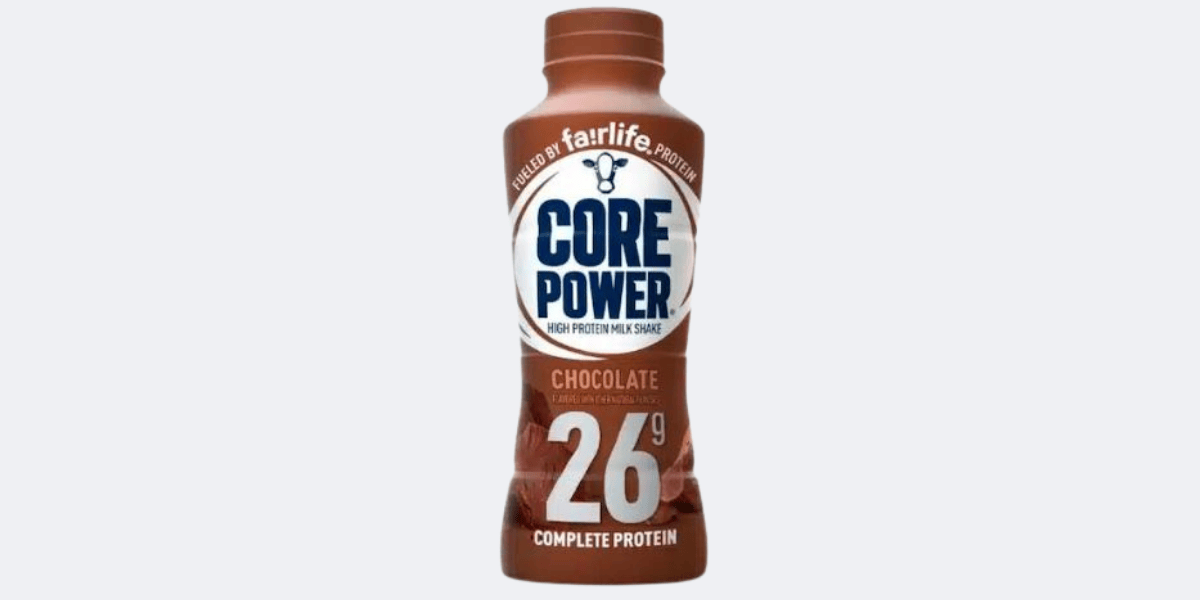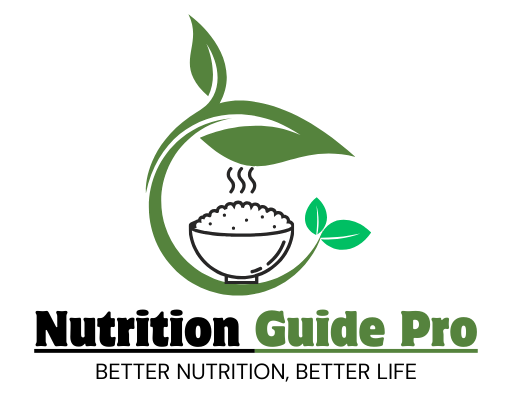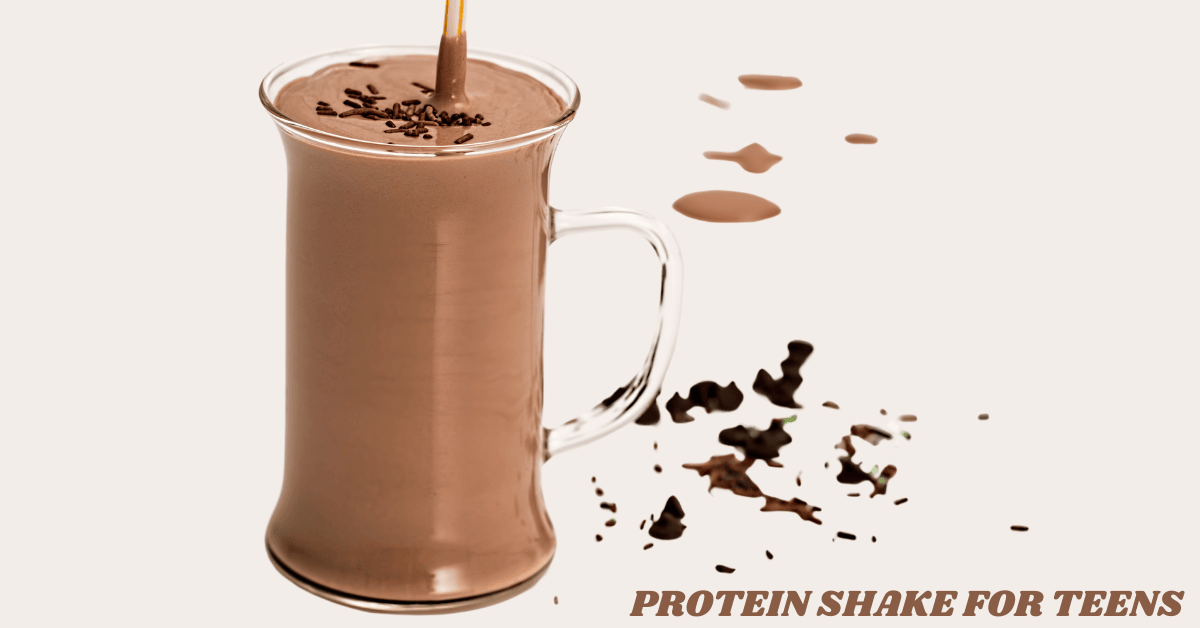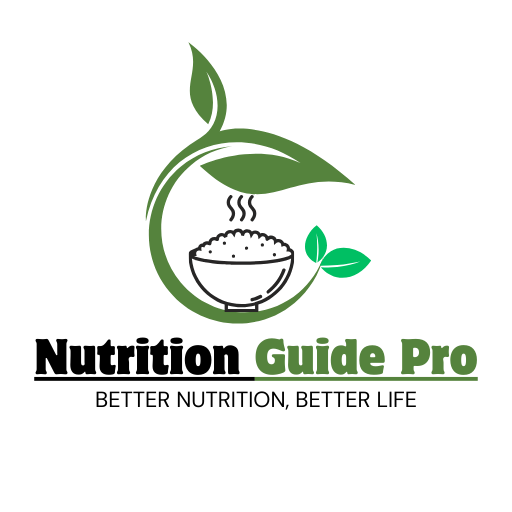What Are The Best Protein Shakes For Teens?
Isopure shakes are perfect for teens needing low-carb, high-protein options, especially after sports. For a creamy, nutrient-packed drink, Fairlife, Orgain, and KOS provide diverse choices, catering to both active lifestyles and plant-based preferences.
Overview of Protein Shakes for Teenagers
Finding the right protein shakes for your teen can be a simple solution to meet their nutrition needs during crucial years of growth and development. As a teenager, balancing the demands of a busy lifestyle, maintaining a balanced diet, and hitting the 16% protein target can be a challenge.
Many teens struggle with getting enough calories, fiber, and vitamins, which makes protein shakes a convenient and necessary option. A recent study highlights that the popular brands teens love often lack the essential nutrients recommended by a dietitian-approved plan.
Parents should look for protein shakes designed specifically for teens, ensuring they provide a good balance of protein and essential nutrients. Choosing the right brands, backed by a blog post or expert advice, ensures your teen gets the most benefit from these drinks while staying on track with their dietary goals.
Why Protein Matters for Teens
As teens go through rapid growth and development, their bodies need adequate protein to stay healthy and strong. Protein supports tissue repair, boosts the immune system, and fuels cell activity, which is essential during this stage of life. It also helps maintain healthy muscles, hair, skin, and nails, making it vital for both physical health and confidence.
According to Paediatrics Child Health (2013), protein provides steady energy for activity, especially during exercise or long periods of effort, while balancing blood sugar levels and working with carbohydrates to prevent sudden energy bursts.
How Protein Affects Growth and Development
During the teenage years, your child’s body is growing rapidly, making protein a key nutrient for physical growth and optimal health.
- Protein supports the repair of tissues such as muscles, skin, and organs, especially during growth spurts.
- It plays a vital role in producing enzymes and hormones that manage critical body functions, including the immune system and energy regulation.
- A healthy intake of protein helps teens recover from injury, fight off illness, and sustain high levels of physical activity.

How Much Protein Do Teens Need?
When it comes to teenager nutrition, getting the right protein intake is essential to maintain muscle mass and overall health. When it comes to teenager nutrition, getting the right protein intake is essential to maintain muscle mass and overall health.
According to the American Dietetic Association and the American College of Sports Medicine, teens need about 0.80 to 1.05 grams per kilogram of their body weight, with young athletes requiring slightly higher amounts—around 1.2-1.8 g/kg. For elite or active adolescents, these levels help promote muscle growth, optimize training recovery, and ensure proper muscle maintenance during growth spurts.
In the United States and Canada, the standard recommendation aligns closely with children and teens, whether they are non-athlete peers or adult athletes in training. Monitoring protein status and sticking to these recommendations will help ensure your teen thrives. The following table represents the amount of protein the teens need. Read out for a better understanding.
| Category | Protein Requirement (g/kg) | Example for 50 kg Body Weight (grams/day) | Example for 70 kg Body Weight (grams/day) |
| Non-athlete teens | 0.80 – 1.05 | 40 – 52.5 | 56 – 73.5 |
| Young athletes | 1.2 – 1.8 | 60 – 90 | 84 – 126 |
| Elite young athletes | 1.8 | 90 | 126 |
Who Needs More Protein?
Some teenagers naturally require more protein due to their unique needs, especially during growth stages when their activity level and metabolic rate are at their peak. Active teens and athletes, particularly teens in sports or those who are physically active teens, often have higher protein needs to support athletic performance and recovery.
Similarly, teens with special diets like picky eaters or those with dietary restrictions, may struggle to meet their protein needs, making a boost through shakes essential. Underweight teens or those recovering from surgery, managing chronic illness, or living with pediatric conditions such as type 1 diabetes, cancer, or Crohn’s disease may also benefit from increased protein intake.
As a parent, understanding how factors like age, weight, and the overall effect of protein play a role can help you provide the right support for these groups.
Are Protein Shakes Necessary for Teens?
For many teenagers, especially teen athletes, meeting daily protein needs can be challenging due to busy schedules, lack of time, or limited access to lean protein sources. While whole foods should be the foundation of a balanced diet, protein shakes, and powders can offer convenience and variety, making it easier to meet their protein goals.
These supplements are not always necessary but can help teens who have trouble consuming enough protein through food alone. With a wide range of flavors and options, protein supplements are a popular choice to overcome the biggest boundaries like taste preferences and accessibility. Though they can be a practical addition to a healthy diet, they should complement, not replace, the nutrition provided by whole foods.
Benefits of Protein Shakes
- Increase muscle mass: Helps build stronger muscles, especially for active teens and athletes.
- Improve recovery: Aids in muscle repair after workouts or physical activities.
- Boost energy: Provides a reliable energy source to keep teens active throughout the day.
- Promote satiety: Keeps teens feeling full longer, preventing unhealthy snacking.
- Aid digestion: Includes fiber and nutrients that promote a healthy digestive system.
- Minimal ingredients: Clean, straightforward options without unnecessary additives.
- Micronutrients: Supplies essential vitamins and minerals for overall health.
- Gluten-free and dairy-free options: Suitable for teens with dietary restrictions.
- Boost metabolism: Helps maintain energy levels and healthy weight.
- Support the immune system: Enhances overall health and resistance to illness.
- Enhance performance: Improves athletic ability and stamina.
- Low sugar: Healthy option that avoids excessive sugar intake.
- Source of vitamins: Provides essential nutrients for growing bodies.
- High protein content: Delivers the right amount of protein for teenage dietary needs.
- Weight management: Helps teens maintain a healthy weight while staying nourished.
- Nutrient absorption: Improves the body’s ability to absorb vital nutrients.
Protein Shake Checklist: What Should Be Included?
20-30 Grams of Protein
Experts recommend including 20-30 grams of protein in a shake to meet a teen’s needs, but it’s important to adjust the amount based on their individual activity level and dietary needs, as the average teen might require slightly different amounts.
5 grams or less of added sugar
When picking protein shakes, watch out for hidden added sugars that can turn a healthy food into a wolf in sheep’s clothing. Choosing options with less than 5 grams of sugar ensures you’re getting quality nutrition, which is a big factor in staying healthy and energized.
Focus on High-Quality Protein
When choosing a protein shake, ensure it contains high-quality options like whey isolate or whey concentrate for better absorption. If you prefer plant-based sources, look for pea protein or brown rice protein, which offers a balanced amino acid profile for a complete protein solution.
Minimal Ingredients for Sensitive Stomachs
For teens with sensitive stomachs, choosing protein shakes with minimal ingredients is crucial. We recommend avoiding artificial sweeteners, gums, and unnecessary additives to reduce the risks of bloating, gas, or GI pain.
Look for clean options made with simple, natural ingredients, as these are less likely to trigger stomach concerns. This approach ensures the right balance of nutrition while keeping digestion smooth and stress-free.
Best Protein Shakes for Teens

Best Powdered Protein Shake: Isopure
Isopure stands out as one of the popular protein shakes for active teens, offering high-quality protein with a whey isolate base.
Pros
- Multiple flavor options are available to suit personal preferences.
- Includes an unflavored option for easy use in baking or cooking recipes.
- Suitable for diabetic teens with no added sugars in the formula.
- Completely gluten and lactose-free, catering to teens with dietary sensitivities.
- Made with simple ingredients, ensuring a clean and wholesome protein source.
Cons
- It may feel expensive, priced at about $1.37 per ounce.
- Its low-calorie content might not meet the needs of teens requiring complete fuel.

Best Ready-to-Drink Protein Shake: Fairlife
Pros
- Shelf stable, so it’s perfect for keeping in backpacks or gym bags without worrying about refrigeration.
- Packed with nutrition, it has zero added sugars and no gritty taste like some powders often do.
- Available in a high flavor variety, it’s lactose free, making it ideal for teens with dietary restrictions.
- Easy to access at grocery stores, it’s a practical option for busy teens needing quick, quality protein.
Cons
- Fairlife protein shakes are convenient but not a fully balanced meal for growing teens. They are low calorie, which might not meet the needs of active individuals on their own.
- To maximize benefits, they should be paired with whole foods like fruits or grains to add carbohydrates for proper post-workout fuel.
- The shake uses artificial sugars like sucralose, which some teens may prefer to avoid depending on personal preference or dietary habits.

Best Vegan Protein Shake: Orgain
Pros
- Orgain vegan protein shakes are perfect for teens who want a plant-based option that is easy to carry in their backpacks or gym bags.
- These shakes are pre-mixed, shelf-stable, and provide complete proteins with all 9 essential amino acids, making them a nutritious choice for growing teens.
- They are gluten-free, soy-free, and lactose-free, ensuring compatibility with various dietary needs while offering zero added sugar and being free of artificial sweeteners.
- With a less gritty texture and 2g added fiber, they are not only healthy but also enjoyable to drink.
- Conveniently available at grocery stores, these shakes provide easy access to balanced nutrition for teens on the go.
Cons
- Orgain may not provide sufficient fuel for teens with high-energy needs unless paired with additional carbohydrates or a more substantial meal.
- Its low calorie content might not be suitable for those requiring higher caloric intake after intense post-workout sessions or during growth spurts.

Best Protein Shake for Sensitive Stomachs: KOS
Pros:
- Plant-based protein in KOS makes it easy to digest, especially for teens with sensitive stomachs.
- It includes digestive enzymes that help improve absorption and reduce bloating.
- Contains no sugar alcohols, ensuring no unpleasant side effects while maintaining a natural flavor.
- With added vitamins and added minerals, it supports overall health during growth.
- Provides 3g of added fiber, which aids digestion and keeps energy levels stable.
Cons
- KOS protein shakes can have a grittier texture, which might not appeal to everyone, especially teens with sensitive stomachs.
- The shakes may contain higher saturated fat levels compared to other brands, potentially making them less suitable for strict dietary needs or health-conscious teens.
Homemade Protein Shakes: A Healthy Option for Teens
Making a homemade protein shake is the best option for ensuring your teen gets the right nutrition while enjoying something delicious. By using whole ingredients, you can control the amounts and types of nutrients included.
Start with a cup of milk (offering 8 grams of protein) and add a couple of tablespoons of nut butter (around 7–8 grams of protein) for a rich, creamy base. Toss in fresh or frozen fruit for natural sweetness and extra flavor, and blend it all with some ice to create a refreshing drink.
The beauty of homemade shakes is that the flavors can be tweaked to your teen’s liking, making them both nutritious and appealing. With just a few minutes and a blender, you can whip up a smooth, protein-packed shake that delivers anywhere from 14 to 16 grams of total protein, depending on the ingredients.
Benefits of Homemade Protein Shakes
For teens with picky habits, Protein Options for Choosy Eaters like homemade protein shakes, are a game-changer. Homemade protein shakes offer several benefits, especially for teens, as they provide a customizable and healthier alternative to store-bought options. Here’s why they’re a great choice:
- Control Over Ingredients
You have complete control over what goes into the shake. This means you can avoid unnecessary additives, preservatives, and artificial sweeteners that are often found in commercial protein shakes.
- Tailored to Nutritional Needs
Homemade shakes allow you to adjust the protein, vitamins, and minerals to meet your teen’s specific dietary requirements, ensuring they get the right balance of nutrients.
- Accommodates Dietary Restrictions
If your teen has allergies, intolerances, or specific dietary preferences (like vegan or dairy-free), you can customize the shake with safe and suitable ingredients.
- Cost-Effective
Making protein shakes at home is often more affordable than buying pre-made or powdered options, especially if you use simple, whole ingredients you already have in your kitchen.
- Better Taste and Variety
Homemade shakes can be tailored to your teen’s taste preferences by experimenting with different flavors, fruits, and add-ins, making it more likely that they’ll enjoy and stick to the habit.
Power Foods for Teens: Best Protein Sources
When it comes to ensuring proper protein intake for your teen, whole foods are the best starting point. The following table summarizes the protein sources and their approximate protein content for better understanding:
| Protein Source | Serving Size | Protein Content (grams) |
| Chicken Breast | 4 ounces | 33 grams |
| Salmon | 4 ounces | 29 grams |
| Ground Beef | 4 ounces | 26 grams |
| Milk | 1 cup | 8 grams |
| Egg | 1 egg | 6 grams |
| Tofu | 0.5 (Half) cup | 11 grams |
| Nuts | 1 ounce | Varies (around 5-7 grams) |
| Beans | 1/2 cup | Varies (around 7-10 grams) |
To help teen athletes maintain energy and optimize their performance, try to spread protein throughout the day with balanced portions from these protein sources. Whether it’s poultry, fish, dairy products, or soy, these options ensure your teen’s body has everything it needs to thrive.
Protein Alternatives Teens Will Love
If your teenager isn’t a fan of a protein shake, there are plenty of tasty and affordable options to meet their protein needs.
- Yogurt
- High-protein milk (e.g., Fairlife, Mootopia)
- Cottage cheese
- Chicken
- Turkey
- Lean pork
- Beans
- Lentils
- Edamame
Understanding the Risks of Too Much Protein
Teenagers need the right balance of protein to meet their growth and energy goals, but consumption beyond the recommended daily value can have risks. During adolescence, consistently eating too much protein has been linked to issues like high cholesterol, poor renal function, and even an increased chance of obesity.
For adolescents, it’s crucial to know their necessary intake, which should be carefully calculated based on weight and activity level. Parents should ensure protein shakes are used wisely, helping teens avoid the risks associated with excess while still meeting their needs for healthy development.
Signs of Protein Overload
- Protein overload can lead to various symptoms, such as:
- Nausea, diarrhea, and bad breath.
- Fatigue, dehydration, and excessive urination.
- Long-term effects of excessive intake include:
- Kidney strain and digestion issues.
- Weight gain, loss of appetite, and nutrient deficiencies.
- An imbalanced diet with too much protein can cause:
- Poor overall health and reduced energy levels.
- Difficulties maintaining a healthy lifestyle.
Special Considerations for Teen Athletes
Protein Requirements for Teen Athletes
Teen athletes have unique protein requirements because their body weight, age, and activity level all play a role in how much they need. For active teens, a balance of protein shakes and balanced meals helps with muscle repair, growth, and meeting energy needs.
The recommended intake often ranges between 0.8–1.2 grams per kilogram of body weight per day, depending on the intensity and type of physical activity. Even non-active teens benefit from proper nutrition for overall health, though their protein needs may be lower.
Can Teen Athletes Meet Their Protein Needs Through Food Alone?
Many teen athletes can meet their daily protein needs with a balanced whole-food approach, but busy school and sports schedules sometimes make it tough. While supplements like protein powder can be a convenient way to help fill gaps in food intake, they’re often unnecessary for teens who are already consuming enough protein.
A well-rounded diet rich in lean proteins, dairy, beans, and nuts is usually enough to support their performance, strength, and muscle mass. However, for athletes with demanding training routines or specific diets, supplementing can help meet increased requirements without replacing meals.
Portable shakes are a quick, on-the-go option, especially when time is tight, but relying on them to produce additional gains isn’t always effective. Keep a balanced perspective—protein from whole foods in the right portions is the best base, and supplements should only be a backup to a thoughtful diet plan.
Protein Shakes for Teen Athletes
Protein shakes for teen athletes are dietary supplements designed to help them meet their protein requirements, especially when their daily food intake falls short. These shakes provide a convenient and quick source of high-quality protein that supports muscle repair, recovery, and growth, particularly for teens engaged in intense physical activities or sports.
Examples of protein shakes suitable for teen athletes include products with balanced nutrition, minimal added sugars, and clean ingredients like whey, plant-based proteins, or blends fortified with essential nutrients to aid athletic performance.
Popular choices may include brands like Isopure, Fairlife, Orgain, and BioSteel or homemade shakes crafted with fruits, milk, yogurt, or nut butter.
Bottom Line
Protein shakes can be a valuable addition to a teen’s diet, especially for active teens or athletes who may struggle to meet their protein requirements through food alone. However, they should be used thoughtfully and not as a replacement for a well-rounded diet. By choosing shakes with quality ingredients, minimal added sugars, and balanced nutrients, parents can confidently support their teen’s growth, performance, and overall health.
Remember, the best approach is always to prioritize whole foods while using protein shakes as a supplement when needed. With the right knowledge and products, you can help your teen achieve their full potential safely and effectively.
Frequently Asked Questions (FAQs)
Is Protein Powder Safe for a 14-Year-Old?
Yes, protein powder can be safe for 14-year-old teenagers, but it’s essential to use it in moderation. A healthy protein intake should support overall health and growth, which are primarily influenced by genetics and proper nutrition, not just supplements.
Using protein powder is unlikely to stunt growth, but it’s important to focus on balanced meals and consult a doctor if you’re unsure.
Who Should Not Drink Boost?
Some people should avoid Boost or similar shakes, especially those with lactose intolerance, galactosemia or who experience side effects ranging from mild to severe. Pregnant or breastfeeding women and those on blood thinners should also consult a doctor to ensure they are safe to use.
What’s Better, Ensure Or Boost?
When choosing between Ensure and BOOST, it’s important to know both offer great options for teens needing higher amounts of nutrients. BOOST stands out for its focus on bone health, providing essential minerals like phosphorus, manganese, and zinc to support growth and strength.
Ensure, on the other hand, supports overall immune health and energy with nutrients that assist in enzymatic reactions and blood clotting, like molybdenum and other vitamins. Both deliver quality protein for the body’s production needs, but the choice depends on your teen’s goals, such as improved energy or enhanced bone health.



